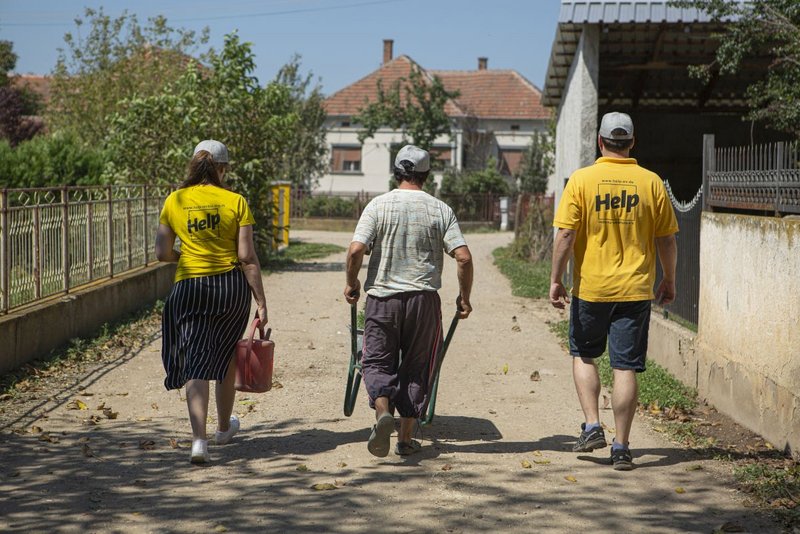25 years of Help in South East Europe
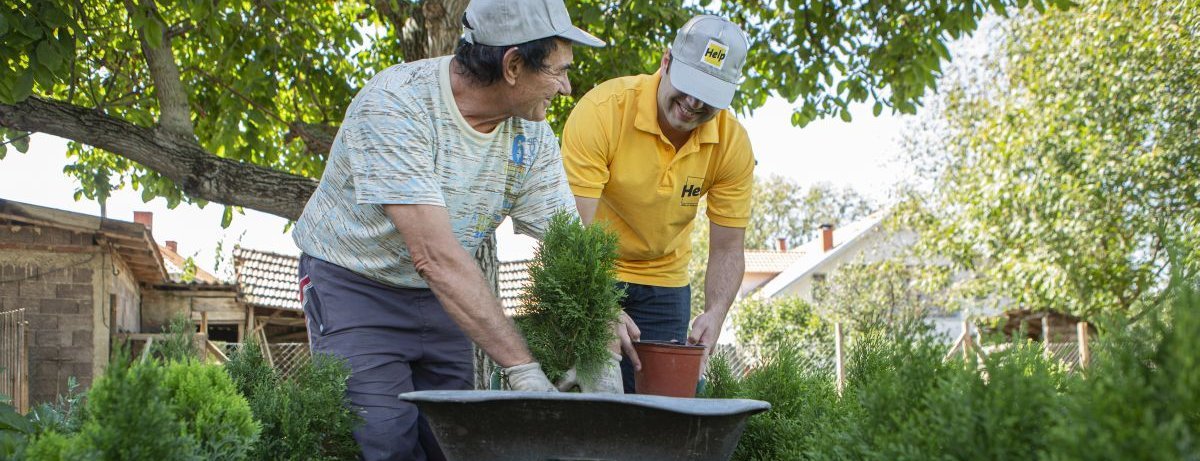
Together for Tomorrow
Help can look back on 25 years of work in South-East Europe and thus on a time when violent conflicts caused the worst hardship, but also on years of hope and sustainable development successes.
Together we create prospects
Unfortunately, reconciliation within and between the individual states in South East Europe remains a challenge, ethnic minorities are excluded, many young people have no prospects, and rapprochement with the EU and its values is proceeding only slowly. In addition to this, the repercussions of the coronavirus pandemic are clearly revealing the fragility of these states. It is vitally important that we remain committed to promoting stability in South East Europe and hence to promoting people’s protection, safety and self-determination.
25 Years in South East Europe
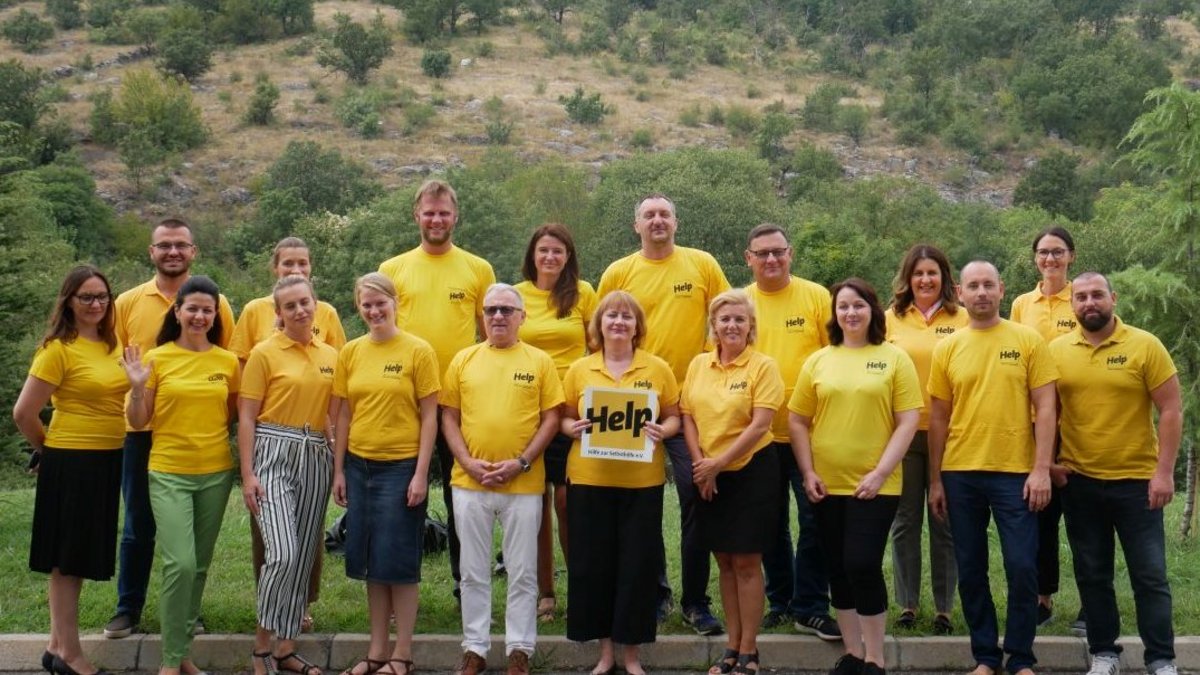
Under the motto of our anniversary, “Together for Tomorrow”, we are therefore calling on states, civil society, business and every individual to stand up for people’s well-being. We can live together in peaceful coexistence only if we take responsibility for each other and act collaboratively.
Help is pursuing the following key operational topics as part of the South East Europe strategy. Environmental protection and innovation are always included as our cross-cutting issues, particularly in the context of economic development.
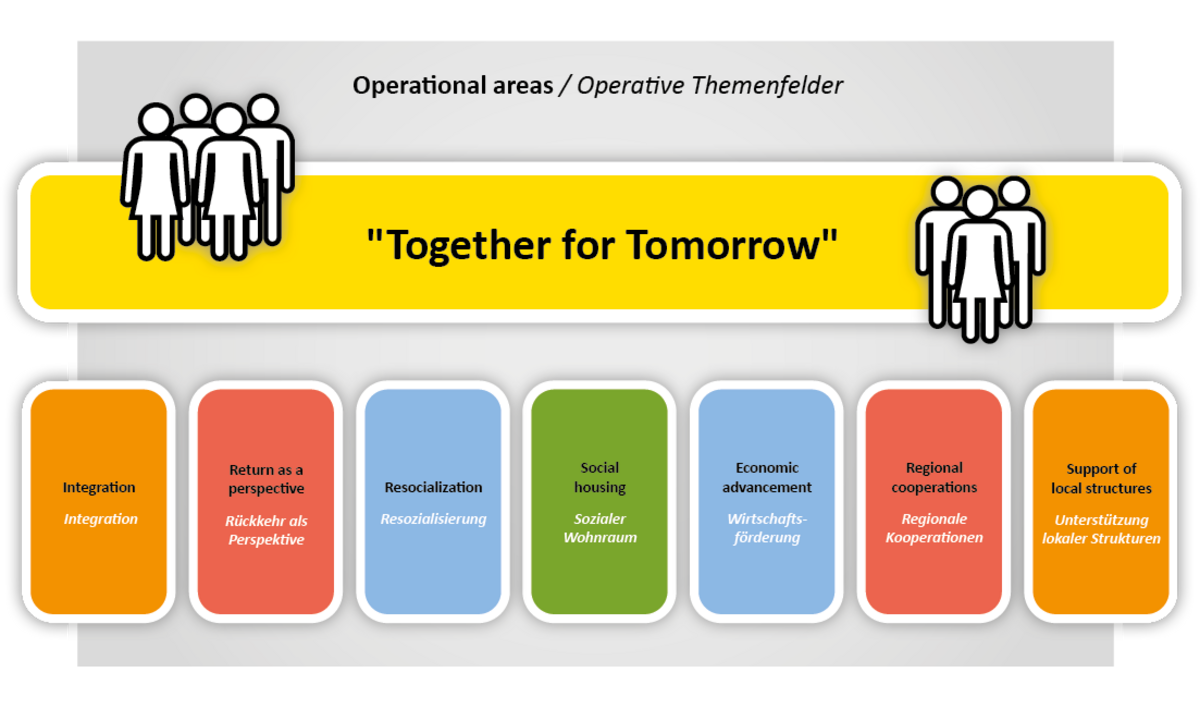
-
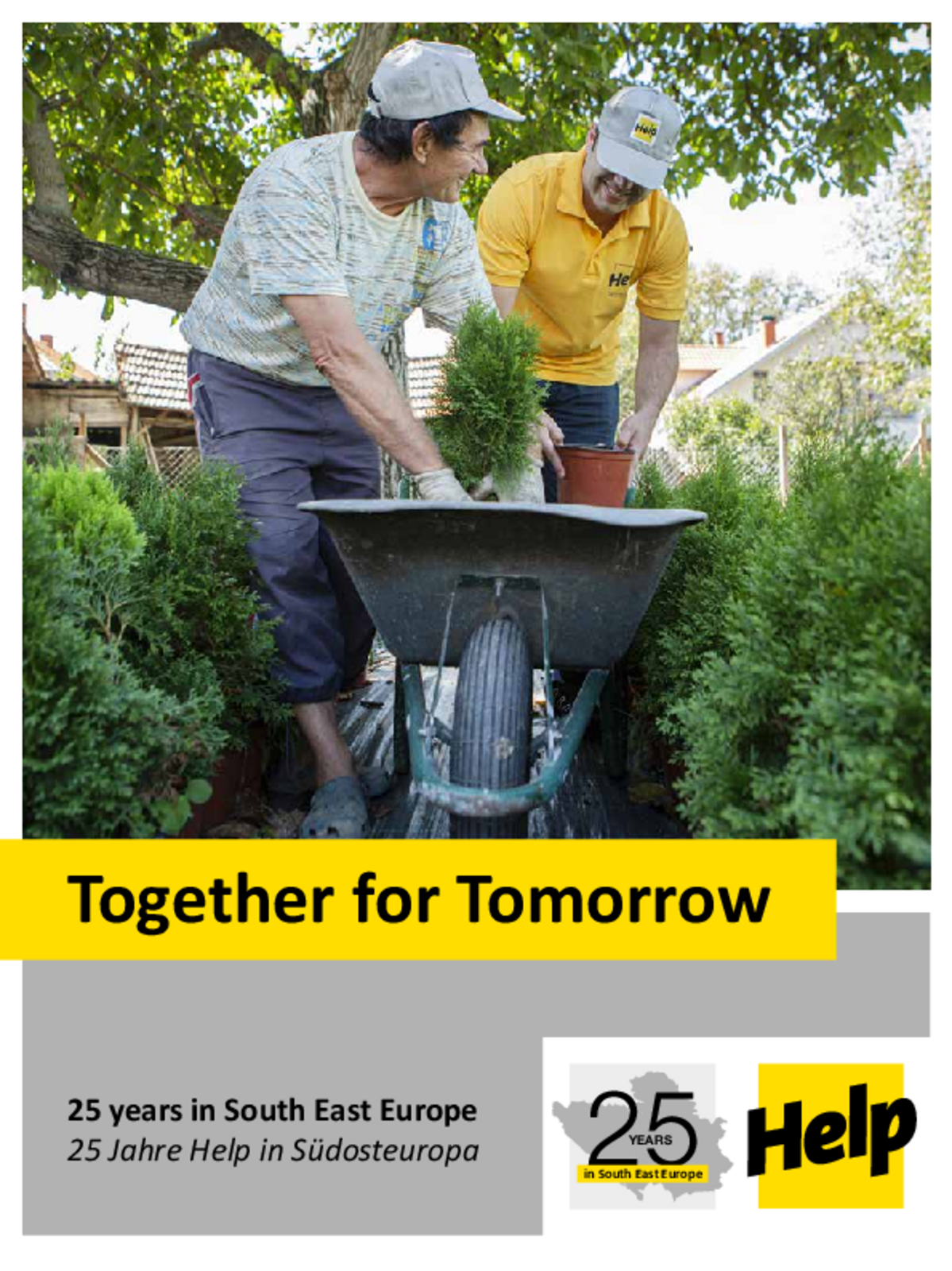 Brochure "Together for Tomorrow"This brochure gives you an insight into Help's success story in South East Europe. We would especially like to thank the teams on the ground, all those who cooperate with us and support us, and the beneficiaries who share their stories with us. Everyone's cooperation gives us the courage to continue. Enjoy reading! Open
Brochure "Together for Tomorrow"This brochure gives you an insight into Help's success story in South East Europe. We would especially like to thank the teams on the ground, all those who cooperate with us and support us, and the beneficiaries who share their stories with us. Everyone's cooperation gives us the courage to continue. Enjoy reading! Open






